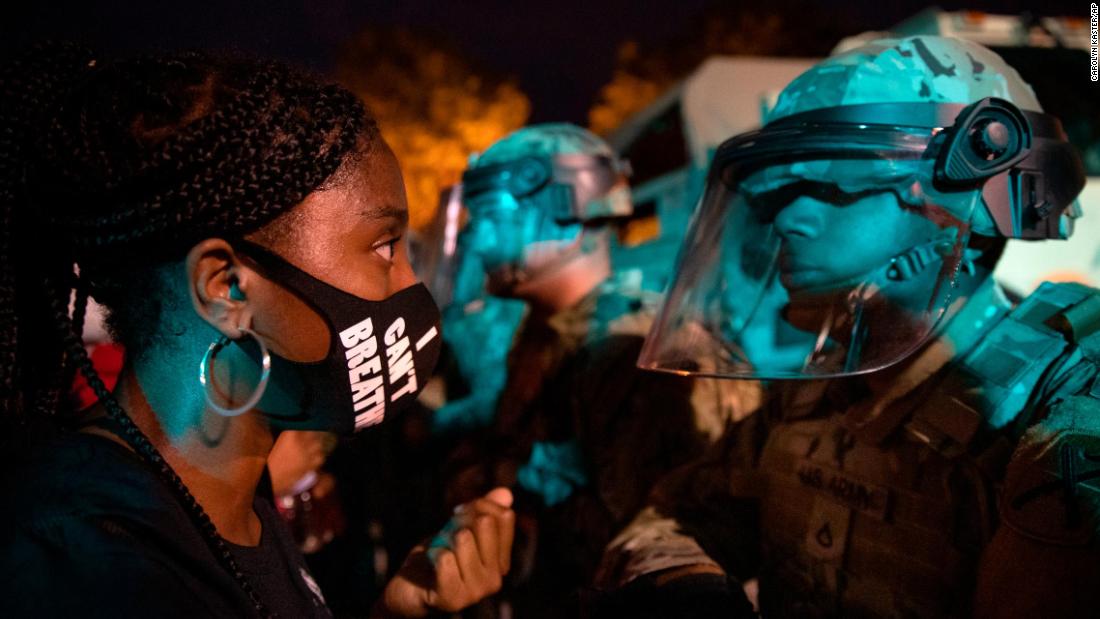Opinion: Two wars collided this year. Both put Black Americans on the frontlines
When I covered armed conflicts in Afghanistan, Libya, Sri Lanka, Gaza and Israel, I always knew I was putting myself in danger. It was a personal choice whether to go or not, and when the decision was made, I pushed the fear and my own frailty to one side and charged in with my intrepid crew members. I knew that if I survived a particularly dangerous assignment, I would leave the battlefield behind.
Those suffering the bombardments could not. They had to witness their homes, their businesses and their very lives being taken from them. I have never gotten over the incredible guilt of being able to walk away from a place under siege because my assignment was up.
The images and sounds come back from time to time as the memories swirl and fade and are reborn. The faces of the dead. Children with severed limbs. The wails of mothers. The desperate croaks of fathers trying to subdue their grief. The sigh of someone’s last breath. The begging for God. The way the eyes look when the spirit is gone.
War terrorizes the mind as much as it does the body. With Covid-19, I’m once again doing war coverage — but of a different sort.

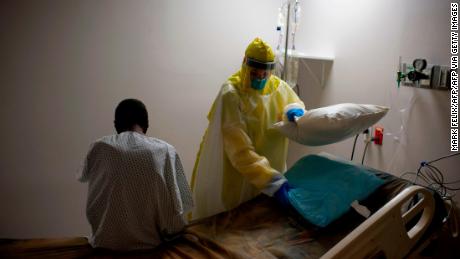
A healthcare worker tends to a patient in the Covid-19 unit at United Memorial Medical Center in Houston, Texas on July 2. (Mark Felix/AFP via Getty Images)
It’s a war where there are no refugees because there is nowhere in the world you can go to fully escape the possibility of being attacked. The bombs are droplets from a cough or sneeze of another person who isn’t intending to hurt you. There is no negotiating with the enemy.
This is a quiet war. A lonely war. A wait-it-out war. A war of uncertainty.
There are no deafening sounds of war planes above or teeth-rattling tanks on our streets. There is less noise than anyone can remember in the major cities. Mostly, what you hear is the hopeful sound of birds chirping all day long. The sunshine beckons, making it hard to resist wanting to socialize with everyone you know — and in person, for goodness’ sake.

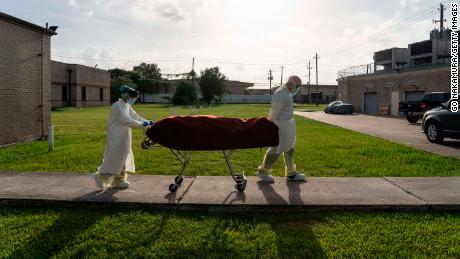
Medical staff push a stretcher with a deceased patient to a car outside of the Covid-19 unit at United Memorial Medical Center in Houston, Texas on June 30. (Photo by Go Nakamura/Getty Images)

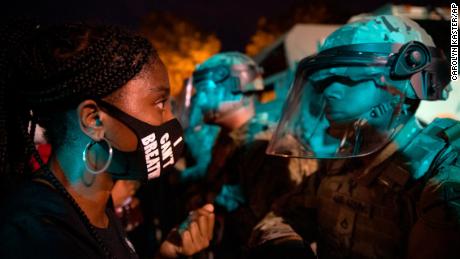
A demonstrator calls out to a military line near the White House on June 3 to protest the death of George Floyd. (AP Photo/Carolyn Kaster)
The outcry against injustice simultaneously put one of the most vulnerable communities to the virus in a potential Covid petri dish. One sign I saw in the streets of Minneapolis summed up the sentiment: “F**k the virus. End Racism Now.”
While many who marched wore masks, I was told by demonstrators over and over again that they were risking their health, and potentially their lives, because marching against police brutality and racism was more important.

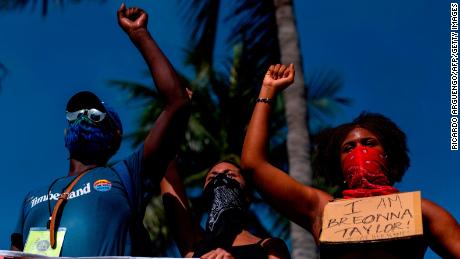
Protesters gather in Miami, Florida on May 31. (Ricardo Arduengo/AFP via Getty Images)
If you’re Black American, you figure that both this new war and the old can take your breath away. It is just a matter of time.
![]()


